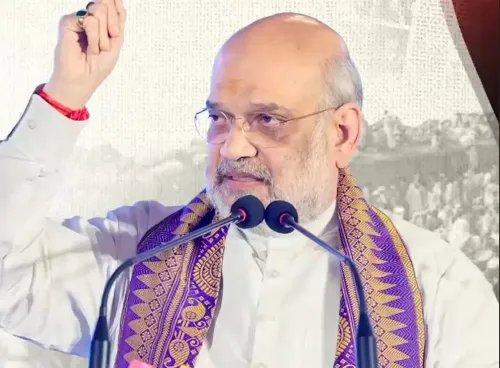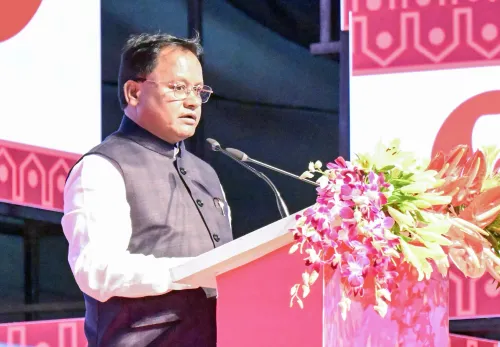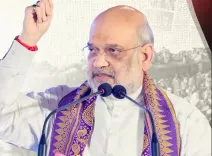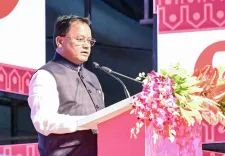Why Did Three Senior Maoist Leaders Surrender to Telangana DGP?
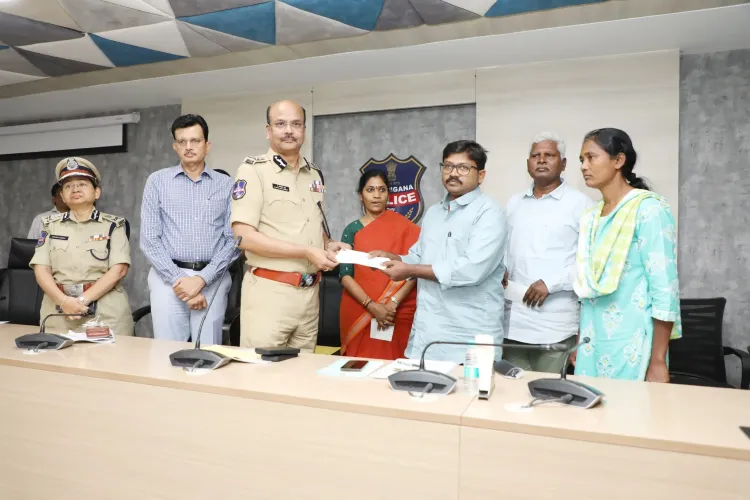
Synopsis
Key Takeaways
- Three senior Maoist leaders have surrendered to the Telangana Police.
- The leaders spent 21 to 35 years underground.
- Health issues and ideological conflicts were factors for their surrender.
- They will receive financial rewards and rehabilitation support.
- This event is seen as a moral victory for the Telangana Police.
Hyderabad, Oct 10 (NationPress) - Three high-ranking leaders of the outlawed CPI-Maoist organization voluntarily surrendered to the Telangana Police on Friday.
The trio, who served as State Committee Members (SCMs) and were entrenched underground for durations ranging from 21 to 35 years, laid down their weapons in front of Director General of Police (DGP) B. Shivadhar Reddy.
Kunkati Venkataiah, aged 52, is a State Committee Member and Secretary/In-Charge of the South Bastar DVC under the Dandakaranya Special Zonal Committee (DKSZC). His compatriots include Mogilicherla Venkatraju, 45, also a State Committee Member and in charge of the CNM in the DKSZC, and Thodam Ganga, 42, who serves as a State Committee Member and is involved in the Janathana Sarkar of the DKSZC and is in charge of Janathana Sarkar, South Bastar DVC.
Venkataiah and Venkataraju, hailing from Siddiper and Hanumakonda districts of Telangana, spent 35 years in hiding, while Ganga, a native of Sukuma district in Chhattisgarh, was part of the outfit for 21 years.
Health issues and ideological differences within the CPI-Maoist contributed to their decision to surrender. Venkataiah mentioned ongoing discussions within the organization that aimed to adjust to the evolving socio-political and economic landscape.
The three leaders had a bounty of Rs 20 lakh each on their heads. The police chief provided them with this sum in the form of demand drafts and assured them of additional benefits under the Telangana government’s rehabilitation policy for surrendered individuals.
The DGP confirmed that all privileges stipulated under the rehabilitation policy will be granted swiftly, allowing them to reintegrate into society with dignity and security.
He described the return of these Maoist leaders after years of underground existence as a significant moral triumph for the comprehensive strategy adopted by the Telangana Police against the CPI-Maoist.
Shivadhar Reddy pointed out that Venkatraju's decision reflects rising discontent within the CPI-Maoist due to ideological disputes and internal strife among its leadership and committees.
He further noted that, encouraged by the holistic strategy of the Telangana police, a total of 412 underground fighters have surrendered to the state police thus far in 2025. This group includes one Central Committee Member (CCM), four State Committee Members, two Divisional Committee Secretaries (DVCS), eight Divisional Committee Members (DVCMs), and 35 Area Committee Members (ACMs).
The DGP added that 72 underground cadres of the CPI-Maoist are from Telangana, with eight out of 12 Central Committee Members originating from the state.
The Telangana Police chief urged all underground Maoist fighters from Telangana to return to their villages and actively participate in the state's development through constructive engagement.
“If those in hiding come back and reintegrate into society, the Telangana government will offer all necessary benefits, including immediate financial assistance and support under its rehabilitation programs, to help them lead a dignified and independent life,” he said.
He assured that the Telangana Police Department will diligently work to ensure that all entitled benefits are provided to those Maoists who choose to rejoin the mainstream, thereby facilitating their livelihood and rehabilitation.


